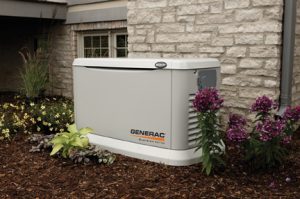Summer storms can be unpredictable and severe, often bringing heavy rain, strong winds, and power outages. When the lights go out, it can disrupt daily life, leaving you without essential appliances, air conditioning, and even security systems. Investing in a standby generator ensures your home remains powered and protected, no matter what the weather brings. Here’s why a standby generator is a must-have for summer storm preparedness.
Understanding Summer Storm Risks
Summer storms, including thunderstorms, hurricanes, and tornadoes, can cause widespread power outages. High winds can knock down power lines, while lightning strikes can lead to electrical failures. In extreme cases, flooding can damage infrastructure, leaving homes without power for hours or even days.
Being prepared is key. Losing power during a heatwave can make your home unbearably hot, spoil food in your refrigerator, and even cut off medical equipment that relies on electricity. A standby generator ensures you won’t have to deal with these risks, keeping your home comfortable and functional.
Benefits of Standby Generators
A standby generator is a long-term investment in your home’s safety and convenience. Unlike portable generators that require manual setup and refueling, standby generators automatically turn on when the power goes out, providing seamless electricity for your entire home. Here are some key benefits:
- Automatic Operation: No need to fumble with cords or switches—standby generators activate within seconds of an outage.
- Uninterrupted Comfort: Keep your air conditioning, lights, and appliances running even during extended power outages.
- Protection for Essential Devices: Power medical equipment, refrigerators, and security systems without interruption.
- Increased Home Value: A standby generator is a valuable home upgrade that can attract potential buyers if you ever decide to sell.
- Peace of Mind: With a standby generator, you won’t have to worry about unexpected storms disrupting your life.
Choosing the Right Generator
Not all generators are created equal, and choosing the right one depends on your home’s power needs. Here are a few factors to consider when selecting a standby generator:
Home Size & Power Requirements: Larger homes with multiple appliances may require a generator with higher wattage. Consider whether you want to power your entire house or just essential appliances.
Fuel Type: Standby generators typically run on natural gas, propane, or diesel. Natural gas is a convenient option if you already have a supply line.
Automatic Transfer Switch: This feature allows the generator to detect a power outage and switch on automatically, making the transition seamless.
Professional Consultation: A generator specialist, like the experts at AH Generators, can help assess your home’s needs and recommend the best unit.
Installation Process Overview
Installing a standby generator requires professional expertise to ensure safety and compliance with local codes. Here’s what to expect from the installation process:
Site Assessment: A technician will evaluate your home’s power needs and recommend the ideal generator size and placement.
Permitting & Approval: Necessary permits may be required before installation, depending on local regulations.
Installation & Hookup: The generator will be securely installed outside your home and connected to your electrical system and fuel source.
Testing & Maintenance: Once installed, the generator will be tested to ensure it functions correctly during an outage. Regular maintenance is recommended to keep it in top condition.
Be Storm-Ready with AH Generators
Don’t wait until a storm is on the horizon—be proactive about protecting your home with a reliable standby generator. AH Generators provides expert consultation, installation, and maintenance services to ensure you’re prepared for whatever the weather brings. Contact us today to learn more about our generator options and find the perfect fit for your home!





